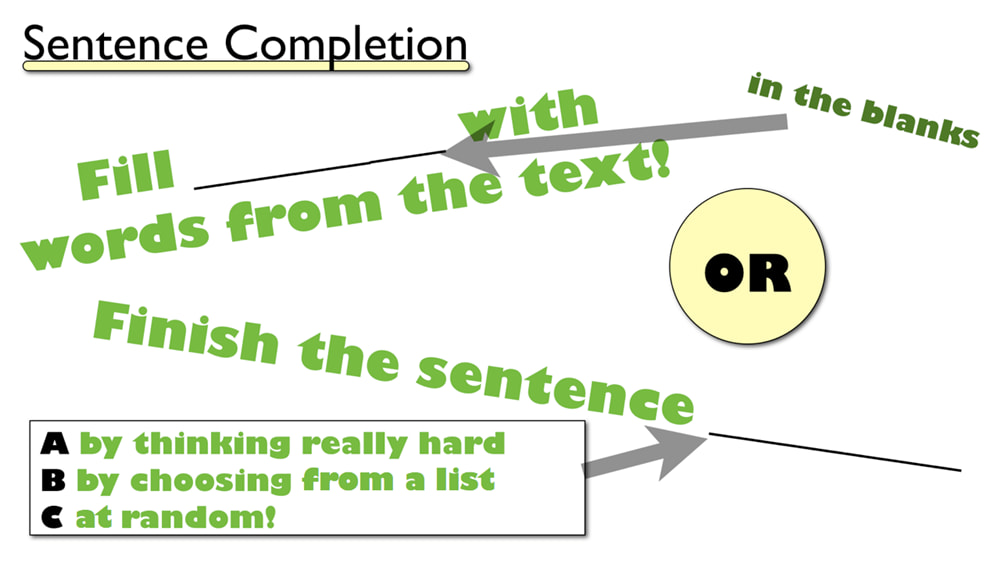
IELTS Reading- Sentence Completion Tips and Strategy
These questions are as much vocabulary tests as they are reading tests because they require you to be aware of paraphrasing (using different words to repeat a sentence so that it has the same meaning) and synonyms (words with the same or very similar meanings).
Task description
In this kind of question you will be given a number of sentences with gaps in them and asked to complete the sentences with words from the reading text.
How to approach this task
- Read the incomplete sentences first. Think about what word form can be used and try to predict the answer. Also think about keywords and how they could be represented by synonyms or paraphrasing.
- Locate where the information is located by scanning quickly. If you can’t locate the answer quickly, move on.
- Read the incomplete sentence again.
- Study the reading text more carefully to establish the answer.
Example
Choose the correct letter, A, B, C or D.
1 When Willis Carrier invented air conditioning, his aim was to
A make workers feel cooler.
B produce more attractive paper.
C set up a new business.
D solve problems in a factory.
2 Home air conditioners were not popular at first because they were
A too big and expensive.
B not considered necessary.
C too inefficient.
D complicated to use.
3 Employers refused to put air conditioning in workplaces at first because they
A could not afford to pay for it.
B thought it was more suitable for cinemas.
C did not want to spend money improving working conditions.
D thought people would not work so hard in comfortable conditions.
How to solve this test?
- Find where the answer is located in the text before you try to answer the question. Remember where before what.
- Read the questions before reading the text.
Keyword table for this practice test:
Keywords in Questions | Similar words in Passage |
When Willis Carrier invented air conditioning, his aim was to solve problems in a factory | Carrier’s invention made it possible to control temperature and humidity levels and so align the colours. |
Home air conditioners were not popular at first because they were too big and expensive. | However, its size, similar to that of an early computer, meant it took up too much space to come into widespread use, and later models, such as the Weathermaker, which Carrier brought out in the 1920s, cost too much for most people. |
| Employers refused to put air conditioning in workplaces at first because they did not want to spend money improving working conditions. | They considered that if they were paying people to work, they should not be paying for them to be comfortable as well. |
Explanation:
Question 1:
- Find the keywords in the reading passage that has similar words in the question:control temperature and humidity levels = solve problems in a factory
- So answer of Q1 is D.
Question 2:
- Find the keywords in the reading passage that has similar words in the question: it took up too much space = too big ; cost too much = expensive
- So answer of Q2 is A.
Question 3:
- Find the keywords in the reading passage that has similar words in the question: paying = spend money ; comfortable = improving working conditions
- So answer of Q3 is C.
Now continue this technique with another questions. This may seem like a lot of work and in the beginning but once you have practised this many times, you will be able to find your answers really fast and with much better accuracy and that will improve your score.
You can practice more this type of question at:
http://mini-ielts.com/reading?search=&q11=on&count=&sort=date-desc




